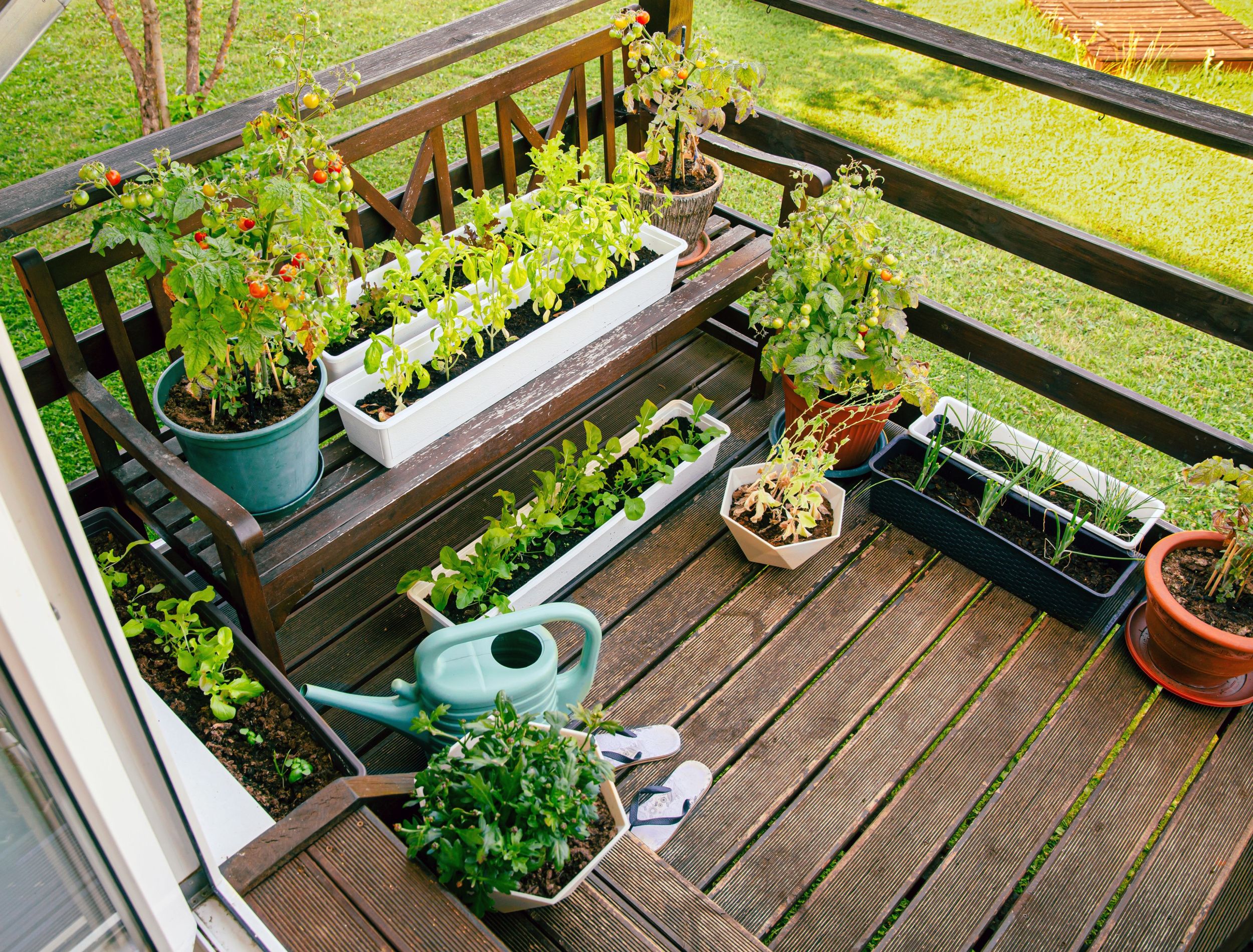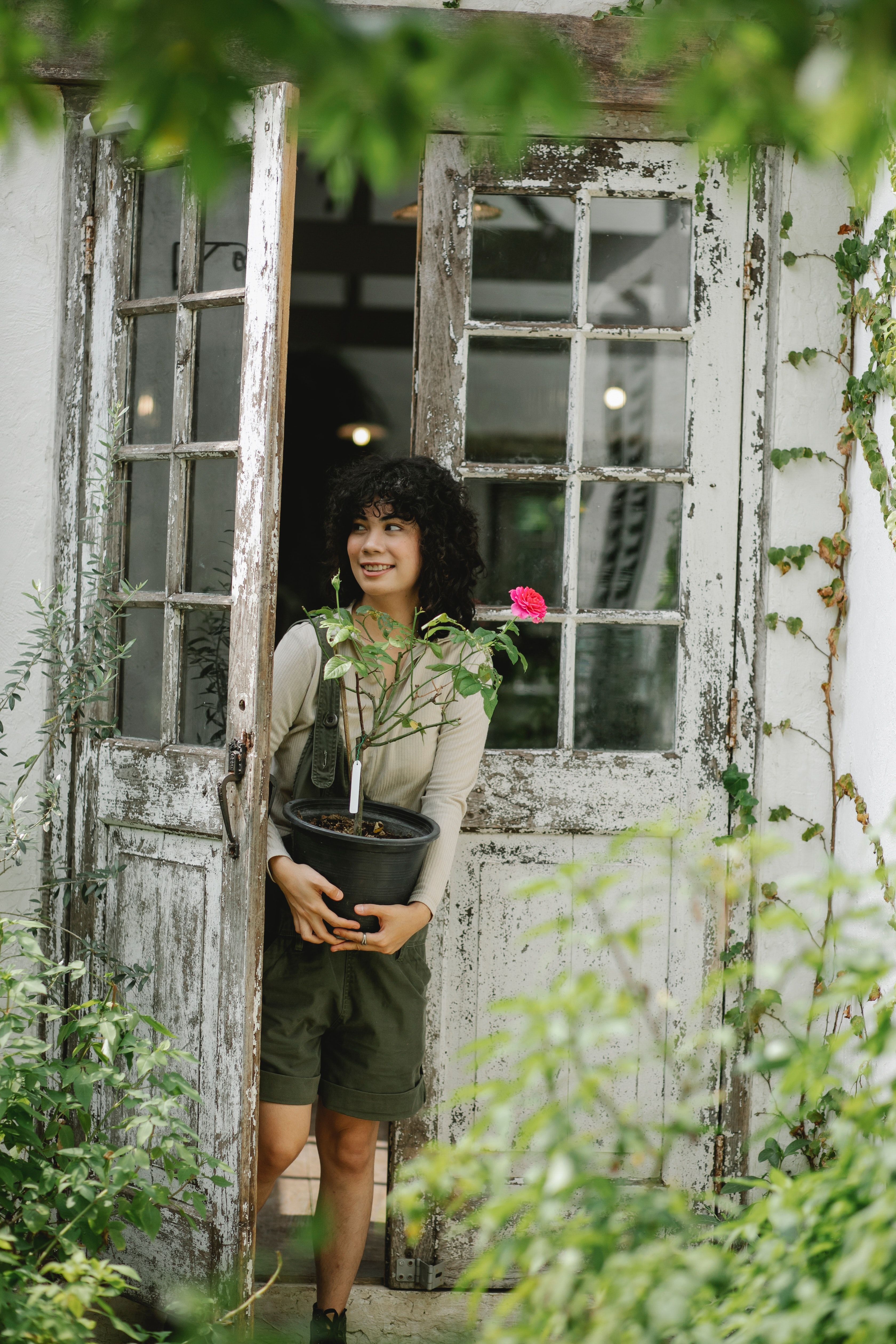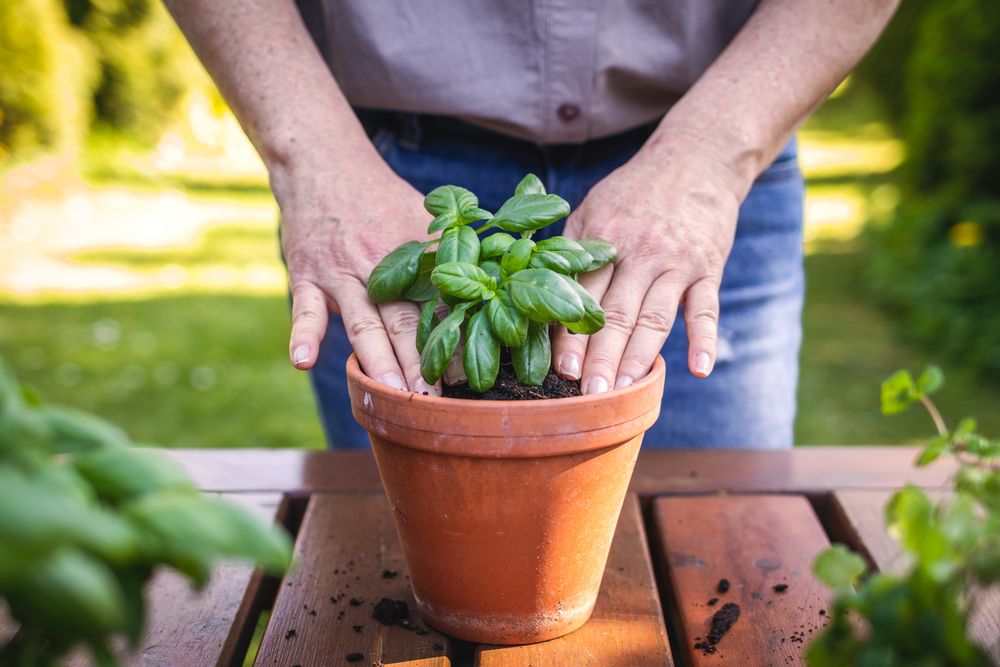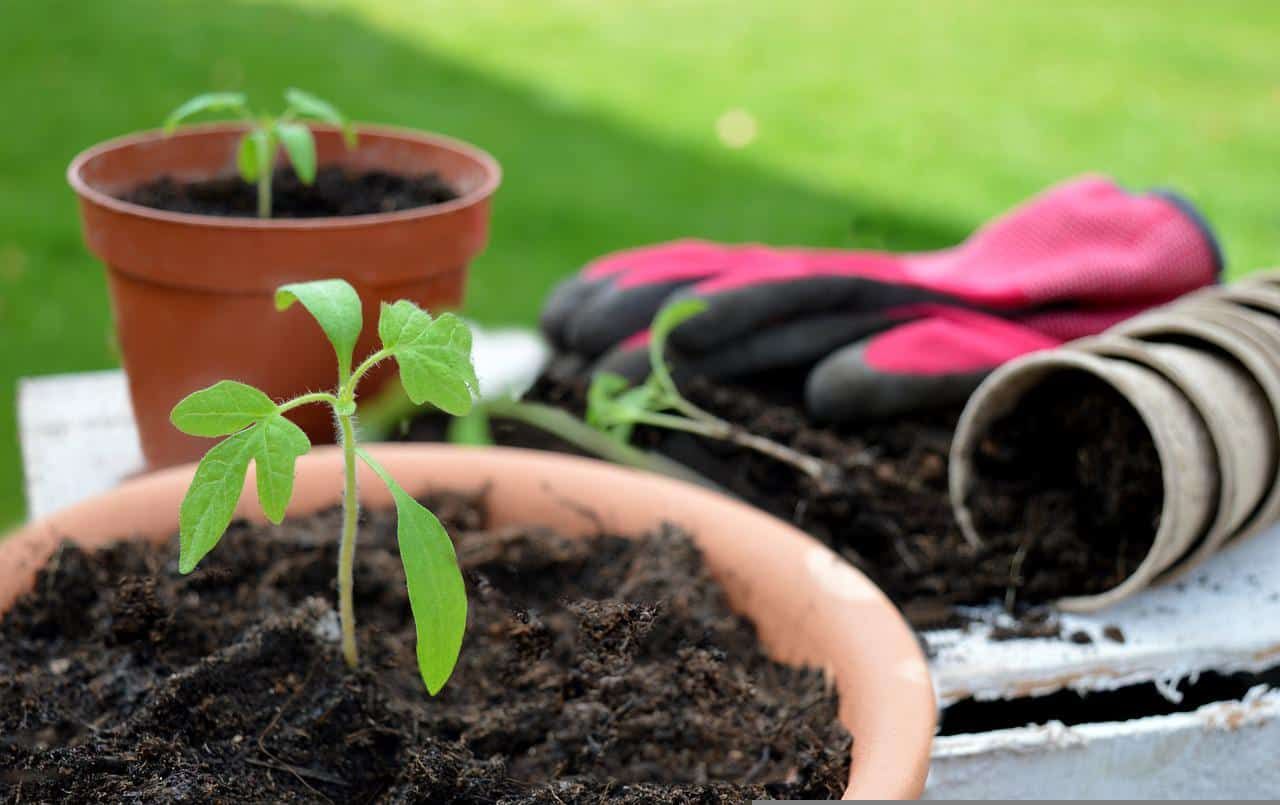If you have a garden, there is a good chance you already use containers. If not, it is time to start! Container gardening is an affordable and practical way to grow vegetables, display beautiful florals, and provide a safe home for fragile plants. While there are many different ways to garden, such as in raised garden beds, in a greenhouse, or even indoors, container gardening boasts its own benefits.
If you aren't quite sure about growing in pots, you might be happy to hear that it requires the same thoughtful planning as growing in your yard, like choosing the right soil, providing the right light and nutrients, and keeping an eye out for pests. Though there are a couple extra perks.
Learn about all the different benefits of container gardening so you can determine if it is the right choice for you.
Ability to Plant Anywhere
Image credits: FotoHelin via Shutterstock
A container garden is the ideal solution for gardening in small spaces. If you have only a porch or patio, or your garden is already full of flowers you love, you can easily plant in a few pots and place them around your yard. You can plant your favorite herbs and place them on a windowsill, while growing veggies on your porch or in a sunny spot in your home. Place hanging containers and flower-filled planters around your patio for an extra touch.
Pro Tip: Companion planting in containers is a popular way to increase yield, while also saving space in your yard. Beets, onions, and garlic all grow well together, meaning you don't have to plant them in separate containers and can just opt for one, larger container.
Portability
Image credits: Gary Barnes via Pexels
If overwintering plants hasn't gone well for you in the past, container gardening is a good option since you can bring the pots indoors. If a perennial plant isn't hardy in your area, cut it back and bring it indoors. Drastically decrease how much you water the plant, but make sure you do research on your specific plant's needs. Keep the plant in a location with temperatures between 20 and 45 degrees Fahrenheit, such as a basement.
You can continue growing many plants indoors, such as tomatoes, geraniums, and peppers. Make sure you are providing enough water and light, supplementing with grow lights as necessary for your specific plant.
On top of all that, you don't have to bend on your hands and knees to care for plants in your container garden. Instead, lift the container to a more convenient height, making chores like watering, fertilizing, harvesting, and deadheading much easier on your back and knees.
Easy Herb Gardening
Image credits: encierro via Shutterstock
Many herbs, like mint, yarrow, and catnip, have the tendency to spread quickly, taking over the plot of land in which they are planted. This invasive growth habit is easy to prevent with the use of containers. This way, you can enjoy delicious herbs without worrying that they will smother other low-growing plants or steal nutrients and kill your nearby veggies and flowers.
Placing herbs in your container garden is also convenient for accessibility. It is common to snip a few leaves off the plants and use them in your cooking, so place the pots on a windowsill or right outside your door so you always have access to them.
Pro Tip: Depending on the variety, only plant one herb plant per pot. Planting fast-growing herbs too close together can result in competition for water and nutrients. Neither plant will grow a healthy root system, resulting in a lack of production. Herbs like basil and oregano do well in the same pot.
Differing Needs
Image credits: Geo-grafika via Canva
Not all plants have the same needs, so planting them in the same garden bed can be problematic. A container garden allows you to choose the ideal soil and pot size for your specific plants. For example, tomatoes have a large root system and thus require a deeper pot, while the shallow root system of lettuce thrives in a shallower pot. You can also easily adjust the soil pH without worrying about affecting your other plants.
But, there are some plants you should never grow together because they compete for nutrients, such as roses and bunchberries, brassicas and beans, and peas and chives. They might also have different lighting, watering, and soil preferences. It can be frustrating if you love two plants but can't plant them in the same bed. Fortunately, you can place them next to each other in containers with different soil, providing the proper lighting and watering!
Tilling the ground is difficult work, but container gardens don't require the task. Since the soil you provide offers a suitable environment for the specific plants, as well as healthy components like compost, you don't have to amend the soil.
Less Weeds and Pests
Image credits: neelam279 via Pixabay
Weeds grow from the ground, so it makes sense that they wouldn't be a problem in a container garden. Remember to use sterile, unused soil specifically made for containers. Do not take soil out of the garden as it may contain bacteria, weed seeds, or pests. Also, apply mulch and pre-emergent herbicides to prevent weed seeds that blow into the containers from germinating.
Pest infestations in your garden can be difficult to control as there is no way to protect or access specific plants. When container gardening, you can isolate infected plants as soon as you spot a problem, effectively nipping the issue in the bud. Then, manage the specific pests as you normally would, such as picking them off the leaves, using pesticides, and washing the plant.
Be-Leaf in Container Gardens
A container garden boasts many benefits, offering a safe-saving solution for small yards, the convenience of portability, and providing a good home for all different plants. Plus, you don't have to worry about weeds or pests as much. On top of all that, there are so many beautiful pots to choose from, perfect for adding an eclectic or carefully curated touch to your yard. You can also use containers in your garden, blending the benefits of each!
Do you know of any benefits of container gardening? Share in the comments below!






